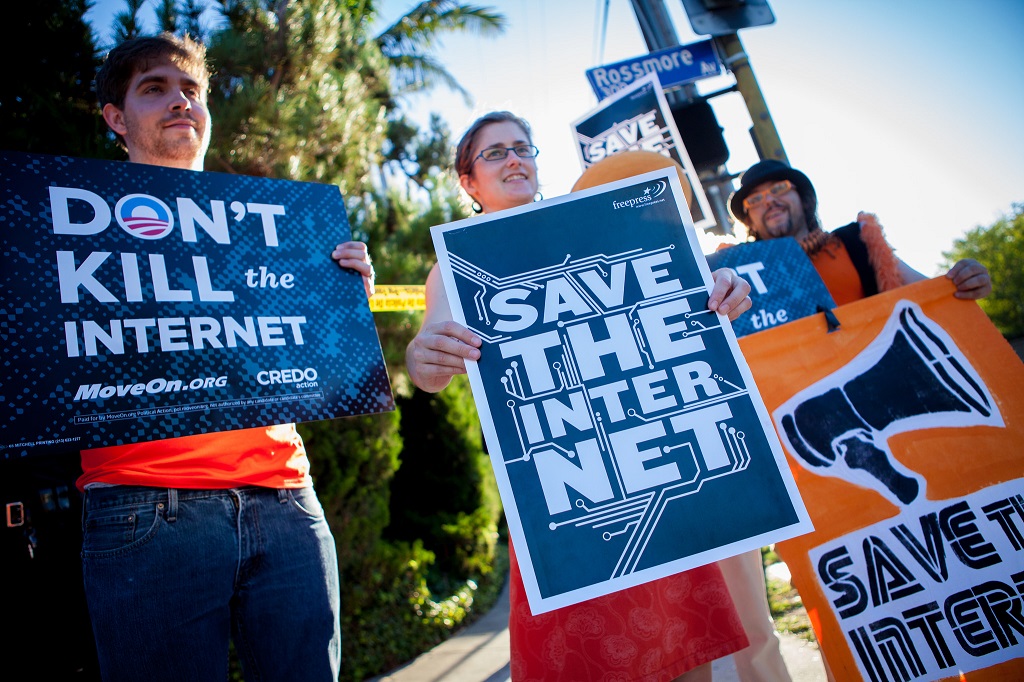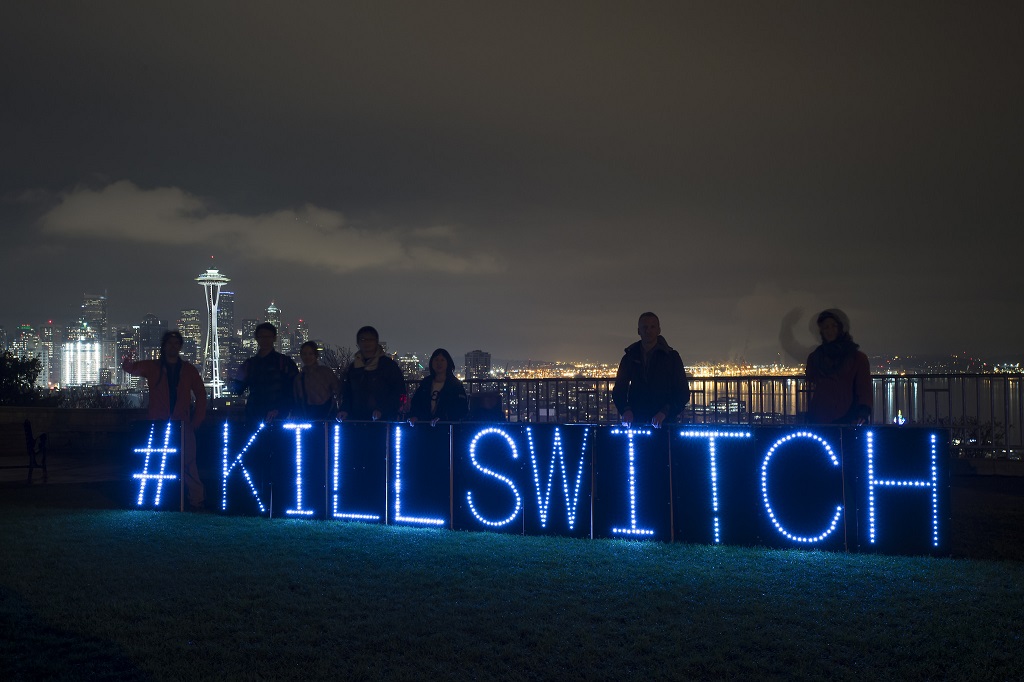The battle for net neutrality - a chance to return
U.S. politicians have introduced a new bill that invalidates the FCC decision to abolish network neutrality in 2017.
Finding out if Net Neutrality has a chance to return. / Flickr / Free Press / CC BY-SA

In February 2015, the Federal Communications Commission (FCC) introduced Net Neutrality. She forbade Internet providers to give priority to traffic from any sources (for example, streaming platforms) and charge an additional fee for accessing services on the network. Then the idea was supported by more than 80 thousand organizations. Among them were large cloud providers and IT companies.
But the concept of Net Neutrality did not last long. Two years later, on December 14, 2017, the FCC decided to consider Internet access an information service. According to the law on communications, providers gained more freedom in setting tariffs, and the rules of network neutrality ceased to apply to them.
The FCC decision led to public protests - people were convinced that it would lead to an uncontrolled rise in prices for Internet services. Against the abolition of Net Neutrality were even large corporations and IT policy . In 2018, an action group from IT companies led by Mozilla filed a lawsuit against the Commission. The governments of thirteen states (such as California and Vermont ) attempted to enact their own laws, leaving net neutrality rules in place.
The fight does not stop even after a year and a half. One of the latest initiatives to restore Net Neutrality rules was launched in mid-March at the federal level.
In March, representatives of the US Democratic Party put forward a new bill - the Act on the Save the Internet (Save the Internet Act). It is a small three-page document and prescribes to restore the 2015 decree on network neutrality and restore legal force to all the rules that were canceled by the FCC two years earlier. The text of the bill is available on the Congress website.
The Democrats' proposal was supported by a number of non-profit organizations. According to a representative of Common Causeand former FCC executive Michael Copps, the abolition of network neutrality rules has led providers to underestimate connection speeds for customers who use competitor services. In his opinion, the return of net neutrality will restore a healthy Internet environment.
Representatives of the e-Commerce community also advocate for the new bill. They believe that in unequal conditions, small companies do not have the ability and resources to compete with large retailers who can negotiate with providers.

/ Flickr / Backbone Campaign / CC BY
Representatives of the Computer and Communications Industry Association (CCIA), which includes large cloud providers and IT corporations, also spoke positively about the new act. By theirAccording to him , the law will protect not only business, but also customers - consumers will have equal conditions for access to online services.
The return of network neutrality rules is also supported by ordinary users. In a 2018 survey, among thousands of Americans, 86% of respondents opposed the option for providers to restrict access to certain services or resources.
It is not surprising that one of the main opponents of the act was the Federal Communications Commission. They criticized both the Act itself and the results of a study conducted among Internet users. The FCC said that the rules of network neutrality were too strict in relation to Internet providers and did not meet the requirements of our time.
The commission said that the abolition of Net Neutrality had a positive impact on the country's Internet industry. In support of its point of view, the organization cited statistics according to which 2018 was a record year for the volume of laid fiber, and the download speed on average in the country grew by 36%. The FCC says that a return to past rules will reduce investment in the development of network technologies and slow down the deployment of 5G networks in the country.
Now the law has every chance to go through both houses of Congress, since the Democrats have a majority in the House of Representatives. However, in its current form, most likely, the US president will not sign it, since the administration has not yet changed its opinion on the issue of net neutrality.
It is likely that the act will be revised. A number of politicians have already expressed their readiness to seek a compromise and amend. Perhaps this time the parties will be able to agree and pass a law that will suit everyone.
Finding out if Net Neutrality has a chance to return. / Flickr / Free Press / CC BY-SA

Brief Background
In February 2015, the Federal Communications Commission (FCC) introduced Net Neutrality. She forbade Internet providers to give priority to traffic from any sources (for example, streaming platforms) and charge an additional fee for accessing services on the network. Then the idea was supported by more than 80 thousand organizations. Among them were large cloud providers and IT companies.
But the concept of Net Neutrality did not last long. Two years later, on December 14, 2017, the FCC decided to consider Internet access an information service. According to the law on communications, providers gained more freedom in setting tariffs, and the rules of network neutrality ceased to apply to them.
The FCC decision led to public protests - people were convinced that it would lead to an uncontrolled rise in prices for Internet services. Against the abolition of Net Neutrality were even large corporations and IT policy . In 2018, an action group from IT companies led by Mozilla filed a lawsuit against the Commission. The governments of thirteen states (such as California and Vermont ) attempted to enact their own laws, leaving net neutrality rules in place.
The fight does not stop even after a year and a half. One of the latest initiatives to restore Net Neutrality rules was launched in mid-March at the federal level.
Read on the topic in our corporate blog:
New bill
In March, representatives of the US Democratic Party put forward a new bill - the Act on the Save the Internet (Save the Internet Act). It is a small three-page document and prescribes to restore the 2015 decree on network neutrality and restore legal force to all the rules that were canceled by the FCC two years earlier. The text of the bill is available on the Congress website.
The Democrats' proposal was supported by a number of non-profit organizations. According to a representative of Common Causeand former FCC executive Michael Copps, the abolition of network neutrality rules has led providers to underestimate connection speeds for customers who use competitor services. In his opinion, the return of net neutrality will restore a healthy Internet environment.
Representatives of the e-Commerce community also advocate for the new bill. They believe that in unequal conditions, small companies do not have the ability and resources to compete with large retailers who can negotiate with providers.

/ Flickr / Backbone Campaign / CC BY
Representatives of the Computer and Communications Industry Association (CCIA), which includes large cloud providers and IT corporations, also spoke positively about the new act. By theirAccording to him , the law will protect not only business, but also customers - consumers will have equal conditions for access to online services.
The return of network neutrality rules is also supported by ordinary users. In a 2018 survey, among thousands of Americans, 86% of respondents opposed the option for providers to restrict access to certain services or resources.
It is not surprising that one of the main opponents of the act was the Federal Communications Commission. They criticized both the Act itself and the results of a study conducted among Internet users. The FCC said that the rules of network neutrality were too strict in relation to Internet providers and did not meet the requirements of our time.
The commission said that the abolition of Net Neutrality had a positive impact on the country's Internet industry. In support of its point of view, the organization cited statistics according to which 2018 was a record year for the volume of laid fiber, and the download speed on average in the country grew by 36%. The FCC says that a return to past rules will reduce investment in the development of network technologies and slow down the deployment of 5G networks in the country.
Prospects for the Bill
Now the law has every chance to go through both houses of Congress, since the Democrats have a majority in the House of Representatives. However, in its current form, most likely, the US president will not sign it, since the administration has not yet changed its opinion on the issue of net neutrality.
It is likely that the act will be revised. A number of politicians have already expressed their readiness to seek a compromise and amend. Perhaps this time the parties will be able to agree and pass a law that will suit everyone.
Posts on the topic from our blog on Habré:
